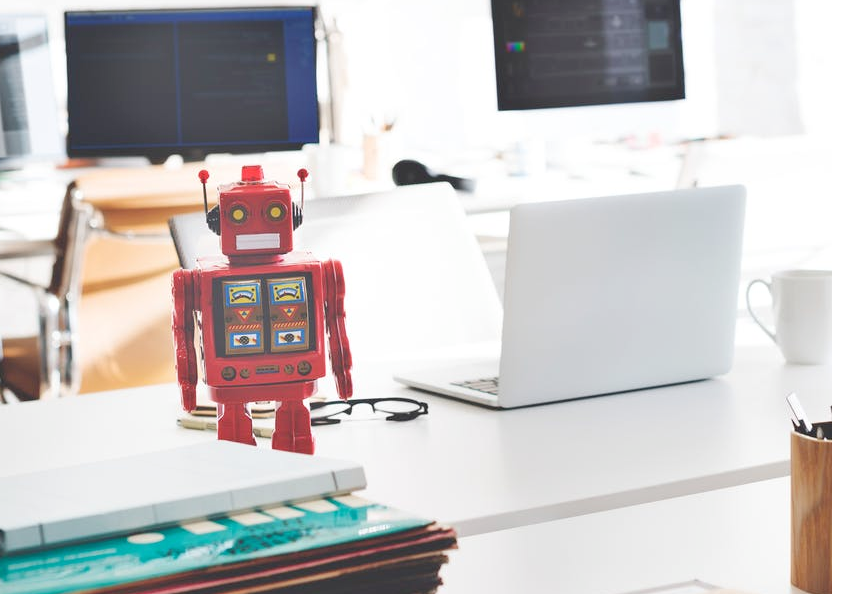It’s inevitable that artificial intelligence and automation will become increasingly prevalent in the years ahead. But, unlike many people fear, it won’t be a case of robots replacing employees – nor will the only jobs be in robotics and programming. Counter-intuitively, as machines become more intelligent, soft skills – creativity, emotional intelligence – are going to become ever more important for businesses.
The changing workplace
Artificial Intelligence is becoming more available and valuable to a wide array of different businesses today. For employers the benefits are obvious: greater efficiencies, reduced costs, higher productivity and improved risk management amongst other examples.
Media stories frequently lead with the jobs that AI will replace when the research suggests this isn’t nearly as much of an issue as we are led to believe. PwC estimates that a relatively low number of job displacements will occur in the first wave of AI – around 3% of jobs – although this is predicted to increase substantially by the mid-2030s.[1] In fact, AI can and should lead to higher job satisfaction and even create new jobs.
But what will change due to AI are the skills that are needed in the workforce. While AI might not be replacing existing jobs in the immediate term, it’s most definitely going to change the kinds of skills required in the workplace – and it’s already doing so.
The future of AI
PwC analysed over 200,000 jobs in 29 countries for their report on the impact of automation in the workplace. They identified three ‘waves’ of automation that will take place over the next 20 years. The first wave, running to the early 2020s, will see algorithmic AI make its way into the workplace. The second wave, taking us up to the late 2020s, is the era of augmentation, where semi-autonomous AI augments the work of employees. The third wave, leading up to the mid-2030s, is the age of autonomous AI, e.g. fully self-driving cars.[2]
We’re already amidst the first wave of automation. 39% of organisations describe themselves as reliant upon automation (in some way).[3] We can see AI use in the ubiquity of chatbots, managing routine customer queries that might have previously been dealt with by customer services teams. In data-reliant businesses – an increasingly large part of the economy – AI is critical for managing and utilising data, as well as for securing data and minimising risk.
And it’s in some of the most important UK industries that we’re seeing the greatest impact on the workforce: in the financial and insurance sectors, in the information and communication sectors, and amongst professional, scientific and technical roles.[4]
Skills for the future
Yet, in most cases – certainly in the shorter term – AI won’t be replacing existing employees but provide a resource to improve both their output but and their engagement at work. Most AI focuses on repetitive or basic problem-solving, and so minimises the dull routine tasks, freeing up people to focus on where they can add real value, and work that is fundamentally more interesting. Statistics show that workers currently spend up to 40% of their work-hours performing repetitive tasks.[5] So there are huge gains to be made.
However, the skills that are required will change, and here lies the challenge of AI for businesses. Although few job losses are predicted in the immediate future, by the mid-2030s up to 44% of jobs held by those with low education levels are predicted to be at risk.[6] In-work training will become ever more important, and increasingly desired by employees.
Often STEM skills (Science, Engineering, Technology and Maths) are highlighted as being essential for the roles of the future. It’s true that there will be, and already is, a greater demand for the skills required in high-technology roles in AI and robotics. But the future of AI will also increase the value of soft skills – creative or imaginative, social and emotional skills that AI will never be able to replace. For example, with routine customer care managed by AI, humans are freed up to focus on higher-value customer relationship-building tasks.
So even as workplaces become more dependent upon AI, the value of soft skills and human interaction is likely to become increasingly valuable, and increasingly valued by customers. Similarly, training in those skills – and across all skills that boost employability – will become increasingly important to businesses and to employees themselves.
[1] https://www.pwc.co.uk/services/economics-policy/insights/the-impact-of-automation-on-jobs.html
[2] https://www.pwc.co.uk/services/economics-policy/insights/the-impact-of-automation-on-jobs.html
[3] https://www.itproportal.com/features/ai-and-the-future-of-work-main-changes-to-expect-in-the-next-years/
[4] https://www.pwc.co.uk/economic-services/assets/international-impact-of-automation-feb-2018.pdf
[5] https://www.itproportal.com/features/ai-and-the-future-of-work-main-changes-to-expect-in-the-next-years/
[6] https://www.pwc.co.uk/services/economics-policy/insights/the-impact-of-automation-on-jobs.html


.jpg)
